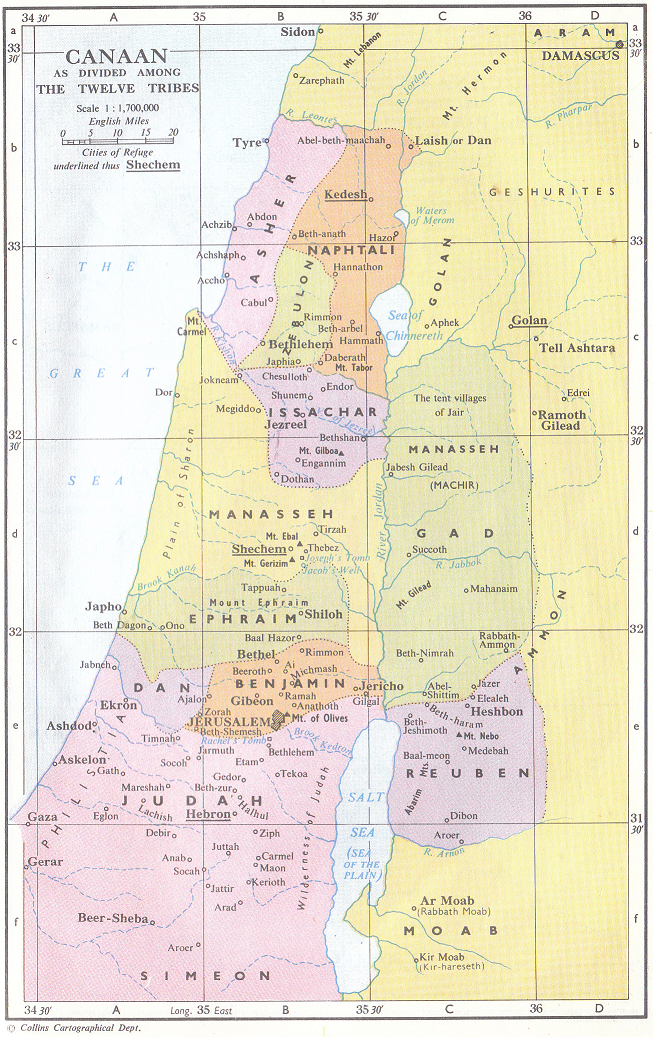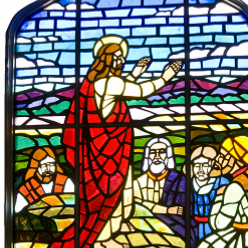The Biblical book of Judges is a diverse collection of oral traditions, mostly from the northern tribes of Israel. It went through several editing processes before it took the form we see today. However, the editing process was not so severe that we cannot see strong traces of the original encapsulated oral traditions.
It is likely that the oral traditions of the various tribes were written down fairly soon after writing in Hebrew script was invented. These traditions included the account of Caleb’s leadership of the tribes of Judah and Simeon found in Judah’s Israelite history (J Source). When the final editor of this text (arguably Ezra) assembled the books of the Pentateuch, it is likely that this part was detached from the rest of Judah’s Israelite history and placed in this work. The rest of this work consists of the stories belonging to the northern tribes of Israel, but which received their current form in the time of King Josiah’s reforms of the religious practices of Israel.
Israel’s enemies
Through these stories we can gain an impression of the forces mounted against the new nation of Israel, with its diverse tribal structure.
The first attack came from the homeland of Abraham, Aram Naharaim, whose people saw an opportunity for territorial expansion following the effective ending of Egyptian hegemony, at least in the hill country of Canaan. However, they were rescued from the oppression of these new overlords through military activity under the leadership of Caleb’s brother, Othniel.
The second attack probably came from the Egyptians, whose military commander, Sisera, and hundreds of chariots supported the remaining Canaanite kings who were still under Egyptian hegemony. There were still a number of these, such as the kings of Beth Shan, Taanach, Mediggo and Gezer. Deborah, who was a prophetess in the country of the tribe of Ephraim, called upon Israel to defend itself against Sisera, who was attempting to take back control of the region around the ruined city of Hazor. Deborah’s general, Barak of Naphtali, routed Sisera and ended this latest attempt by the Egyptians at military mastery. This victory was achieved through an alliance of men from Ephraim, Benjamin, the Machir branch of Manasseh, Zebulun and Issachar. Those noted as missing in the action were the tribes of Asher (which included Tyre), Reuben, Gad and Dan. Those not mentioned at all were Judah and Simeon. All of this can be associated with a renewed Egyptian presence in Canaan during the reign of Ramesses III (1186-1155 BC).

Ramesses III claimed that, after he defeated the Sea Peoples, he settled them in southern Canaan. This was the most successful part of his interventions in Canaan, since it led to the introduction of a thorn in Israel’s side – the people the Israelites called the Philistines. Although most of the towns occupied by the Philistines were in the territory designated as belonging to the tribe of Judah, it was the tribe of Dan that was the most seriously displaced. This tribe eventually left its designated region, and settled to the north of the inheritance of the tribe of Naphtali, around the city of Laish, which it renamed Dan.
The third main line of attack was from across the Jordan. It is not clear the order of these events, but this is the order followed here:
- Ehud holds back the Moabites.
- Gideon defeats the Midianites.
- Jephthah resists the Ammonites.
At the time of the rise of Ehud, the Moabites must have already gained hegemony over the tribe of Reuben, since they were able to take the city of Palms (Jericho) as well as demanding tribute from the tribe of Benjamin. Ehud, of the tribe of Benjamin, killed the Moabite king, and then blocked the fords across the Jordan that had given the Moabites access to the territory of Benjamin. From this we can see that Reuben was left to fend for itself.
The discussion of the progress of the contest between Israel and Moab indicates that there was a power vacuum on the eastern side of the Jordan, which neither Israel nor Moab was able to fill. The Midianites and Amalekites exploited this, passing over the Jordan and raiding Israel. Gideon, of the tribe of Manasseh, responded to the challenged and defeated the Midianites and the Amalekites. During this war the elders of the city of Succoth, in the territory of Gad, refused to help him, even to the extent of refusing to provide his troops bread for sustenance. Reuben was already lost and Gad was cutting itself of from Israel (or had already done so). In this situation it is not surprising that the Ammonites re-took control of their former territory from the Reubenites: there was no united force to oppose them.
With Moab defeated by Israel, the Ammonites had a free hand to operate on the east side of the Jordan, and were threatening the territory of Machir (the half-tribe of Manasseh) to its north. Gad, apparently, had already gone down. Although Jephthah, a man of Machir and the son of a prostitute, was rejected by his half-brothers, later when the Ammonites made war on Israel, ironically the Israelites called upon Jephthah to save them from the Ammonites, which he did.
The final story in Judges is a shocking tale of an attempt to sodomize a travelling Levite, which led to the cruel death of his concubine. When the Benjamites refused to give up the guilty men, Benjamin was treated as an enemy. A war ensured that nearly wiped out the whole tribe. Since this story is put in the time of Phineas, the son of Eleazar, who was an adult before the Israelites entered Canaan, this story has to be placed in the first fifty years or so or Israelite history.
The reformers’ edits
From the time of King Josiah, and perhaps earlier, it came to be believed that every set-back that the nation had received was entirely due to the failure of the people to worship Yahweh exclusively.
This idea is introduced into every story in Judges. It is an editorial intrusion, giving this work its main purpose in the eyes of its editor, and probably for its audience as well. This then places the penultimate phase of this work in the time of King Josiah (ca. 620 BC).
Final edit
The work received its final edit when the Pentateuch was produced, with chapter 1, dealing with Caleb’s exploits, being added to the text.
